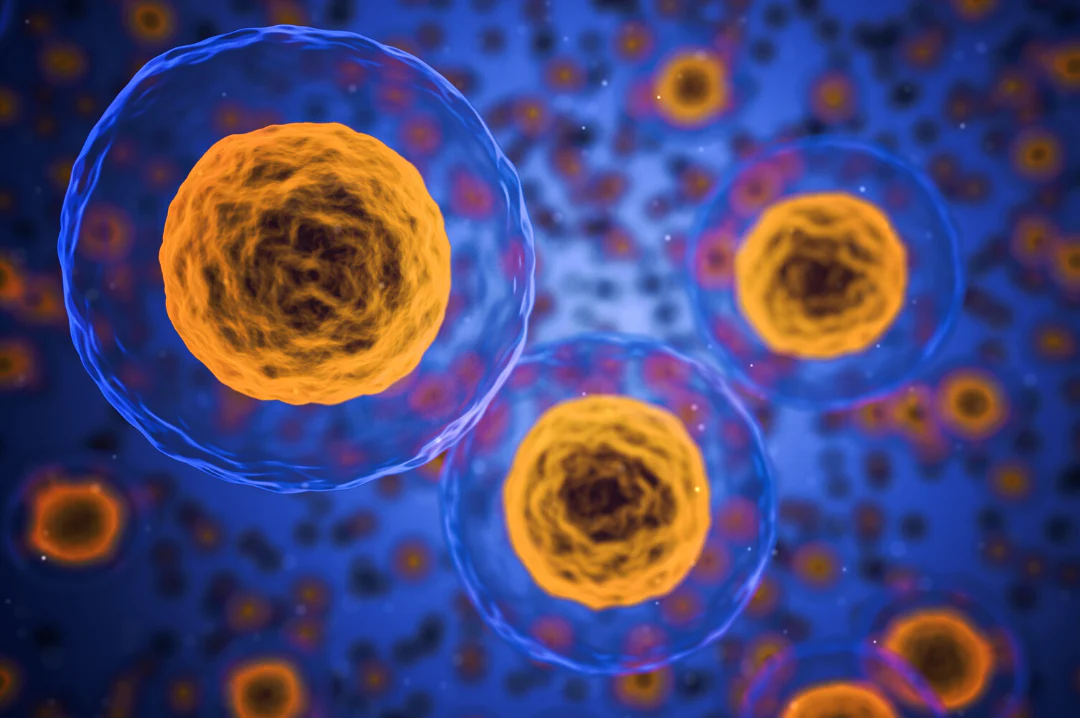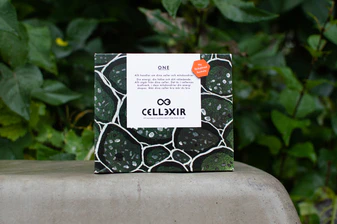Blog
PQQ – en kronjuvel i Cellexir

PQQ – A supplement with an arsenal of health-promoting properties
PQQ (Pyrroloquinoline quinone) was first discovered in 1979 and has since been extensively studied where it has been shown to promote health in a number of physiological fields. Among other things, PQQ has been shown to increase the number of mitochondria and improve its function, have antioxidant properties on the cells, and improve cognitive properties as well as help the formation of new muscle cells in the heart. [1]. These positive properties together with the fact that PQQ cannot be produced in the body, but must be added through the diet, causes the substance to qualify as a clear player in a performance-enhancing dietary supplement.
Research on PQQ, FDA approval and side effects
PQQ is a highly interesting substance that has been shown to have several positive health promoting properties without significant side effects. As recently as 2009, the substance was approved as a dietary supplement by the US FDA (Food and Drug Administration), and since then no adverse effects reports have been made. [1].
PQQ’s positive effects have contributed to many researchers, including Dr. Marcus Gitterle, claims that the substance would probably be classified as a drug if it were discovered today. But since it is not patentable, the commercial interest from the pharmaceutical companies is weak.
Worth mentioning is that the research I refer to below includes both cellular, animal and human studies and that there is a need for future clinical studies on humans to better understand the mechanisms behind PQQ’s impact on our cells.
Deficiencies in PQQ indicate negative effects
Several studies have shown clear signs that when PQQ is excluded from the diet, several deficiency symptoms occur, including poor cell growth, dysfunctional immune system and reproductive impairment. Together, a number of studies show a number of positive physiological effects have led to PQQ now being seen as a unique health-promoting substance that is considered necessary in the diet. [1].
Although the substance has been found to be essential for several physiological functions, PQQ is not classified as a vitamin, although several researchers claim it should [1]. Among other things, a prominent research group has proposed PQQ as a candidate for a supplement to the group of B vitamins [5].
An arsenal of health-promoting properties
PQQ’s physiological and health-promoting properties have attracted great interest in recent years. Above all, its positive effects in promoting cell division and growth, against T2 diabetes, as antioxidant and for its protective effect on the brain. [1].
PQQ has been shown to have a positive impact on mitochondria. For example, a study in mice where PQQ was removed from the diet showed that they had 20-30% fewer mitochondria in the liver and lower lung capacity than those receiving PQQ supplementation. This indicates that supplementation of PQQ gives more mitochondria, which contributes to an improved energy function in the cells. [6].
PQQ has also been shown to have great antioxidant properties, which in one study was measured 7.4 times greater than vitamin C, which is one of the most active water-soluble antioxidants [7]. Direct evidence has also been found that PQQ reduces oxidative stress and mitochondrial dysfunction in cardiac muscle cells [8]. Thus, PQQ also has a positive impact on heart function, but more research in the subject is needed.
Brain cells have also been shown to benefit from PQQ for improved learning and memory. Among other things, in a study in rats, they were able to show significant benefits in memory function when supplemented with PQQ and at the same time exposed to 48h of oxidative stress. The study found that PQQ appears to protect brain cells from oxidative stress. [9].
On the same theme, a double-blind, placebo-controlled clinical study was conducted in 2016 on 41 elderly people where a group received PQQ supplementation for 12 weeks. Memory tests showed clearly improved memory properties when supplemented by PQQ compared to the placebo group. [10].
Similar results were found when examining the effect of supplementation of PQQ together with coenzyme Q10 in which 65 older subjects showed significantly improved memory function, but also improved attention and reduced stress. Interestingly, the effect was enhanced when supplements were taken in combination with Q10. The researchers explained the result of PQQ facilitating nerve generation and improving the “Nerve Growth Factor” – a substance that promotes growth, maintenance and survival of nerve cells. They also conclude that PQQ also increases the number of mitochondria and their effectiveness so that they can assist brain cells more effectively. [11].
In addition to the above mentioned effects, PQQ has also been shown to provide a protective effect against non-alcoholic fatty liver disease (NAFLD). This makes PQQ highly interesting from a pharmaceutical perspective as well, since NAFLD is one of the fastest growing diseases in the West, where as many as 25% of the American population is estimated to live with the disease. [2].
Food with PQQ
As previously mentioned, PQQ seems to be essential for animals as the absence of the substance leads to several disabilities and that we must therefore get the substance through the diet. However, relatively low doses of PQQ are sufficient to prevent the negative side effects in the absence of the substance. [6].
Foods that contain PQQ include kiwifruit [2], but have also been found in foods such as wine, carrots, eggs, skimmed milk, green peppers and soybeans (see list below from a study that quantified the amount of PQQ in some of the most common foods ). [4].
Foods with higher levels of PQQ have not been found, but on the other hand it has been found to be in higher concentration in women’s breast milk [3].
Summary
PQQ is a versatile substance that has been shown to have positive effects on cell growth, function and energy creation, antioxidant properties, better cardiac function and contributing to better cognitive and memory functions. With this arsenal of health-promoting properties, with no proven side effects, PQQ plays a key role in a performance-enhancing dietary supplement.
Newsletter
Sign up for our newsletter










